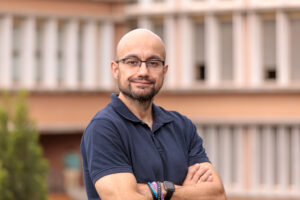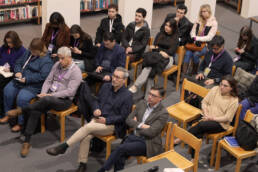Professor and researcher Benjamín González Díaz, from the Department of Industrial Engineering at the University of La Laguna, was in charge of closing the STARS Talks 2024/2025 edition, offered within the framework of STARS EU, providing a comprehensive approach to the energy transition in isolated systems, such as that of the Canary Islands.

From the point of view of energy sovereignty, “Is it possible for an island territory like the Canary Islands to produce all its energy to operate autonomously?“, the leader of the TIG Energy Transition explained that the islands have a condition of fragility in terms of sustainability and a high external energy dependence, a common denominator in the more than 300 inhabited islands in Europe.
Taking international experiences such as the case of Hawaii as a point of reference, the study presented by Benjamín González warns that decarbonisation cannot be limited only to a change in technologies, but must be accompanied by structural transformations in planning, grid management and the consumption model.
Large grids versus microgrids
The research compares large interconnected grids with microgrids or isolated energy systems such as that of the Canary Islands. While large grids offer economies of scale and greater stability, island microgrids have greater autonomy, flexibility and resilience. On the contrary, they face higher costs, as well as capacity constraints and operational challenges.
According to the renewable energy expert, the road to climate neutrality in the Canary Islands requires the electrification of public transport, the construction and rehabilitation of buildings with high energy efficiency standards, and the prohibition of the use of fossil gas.
 Addressing the climate challenge also involves developing distributed renewable projects (battery storage and collective self-consumption) and carrying out energy planning that includes desalination, due to the growing demand for electricity that this entails.
Addressing the climate challenge also involves developing distributed renewable projects (battery storage and collective self-consumption) and carrying out energy planning that includes desalination, due to the growing demand for electricity that this entails.
In the Canary Islands, this transition is linked to key factors as important as water scarcity, electric mobility ─ which requires a rethinking of infrastructures and public policies ─ and the incorporation of green hydrogen.
“The real challenge for the Canary Islands is not only to change sources, but to guarantee real energy sovereignty, adapted to our geographical and social conditions,” explained González. The STARS EU member stressed that this fact implies generating more resilient, local and sustainable models, in addition to all the agents involved, citizens, public administrations and universities, acting in a coordinated manner.
González’s talk has put the finishing touch to this edition of STAR Talks, the open online seminars of STARS EU in which knowledge and initiatives that support the development of European regions are addressed from different points of view. Organised by the Challenge Lab, this edition was attended by seven experts from the member universities of the alliance, and specialized in different fields of research.
Related Posts
February 28, 2026
In2CoP 2026 strengthens co-creation and innovation in higher education within STARS EU
With 60+ prototypes and three award winners, the event generated initiatives…
February 27, 2026
STARS EU convenes an online workshop on Digital Transformation for students
The call, which will be held on 12 June, is aimed at undergraduate, master's…
February 10, 2026
STARS EU partner IPB celebrates 43 years of regional commitment and international cooperation
The formal anniversary ceremony was held in Chaves (Portugal).




